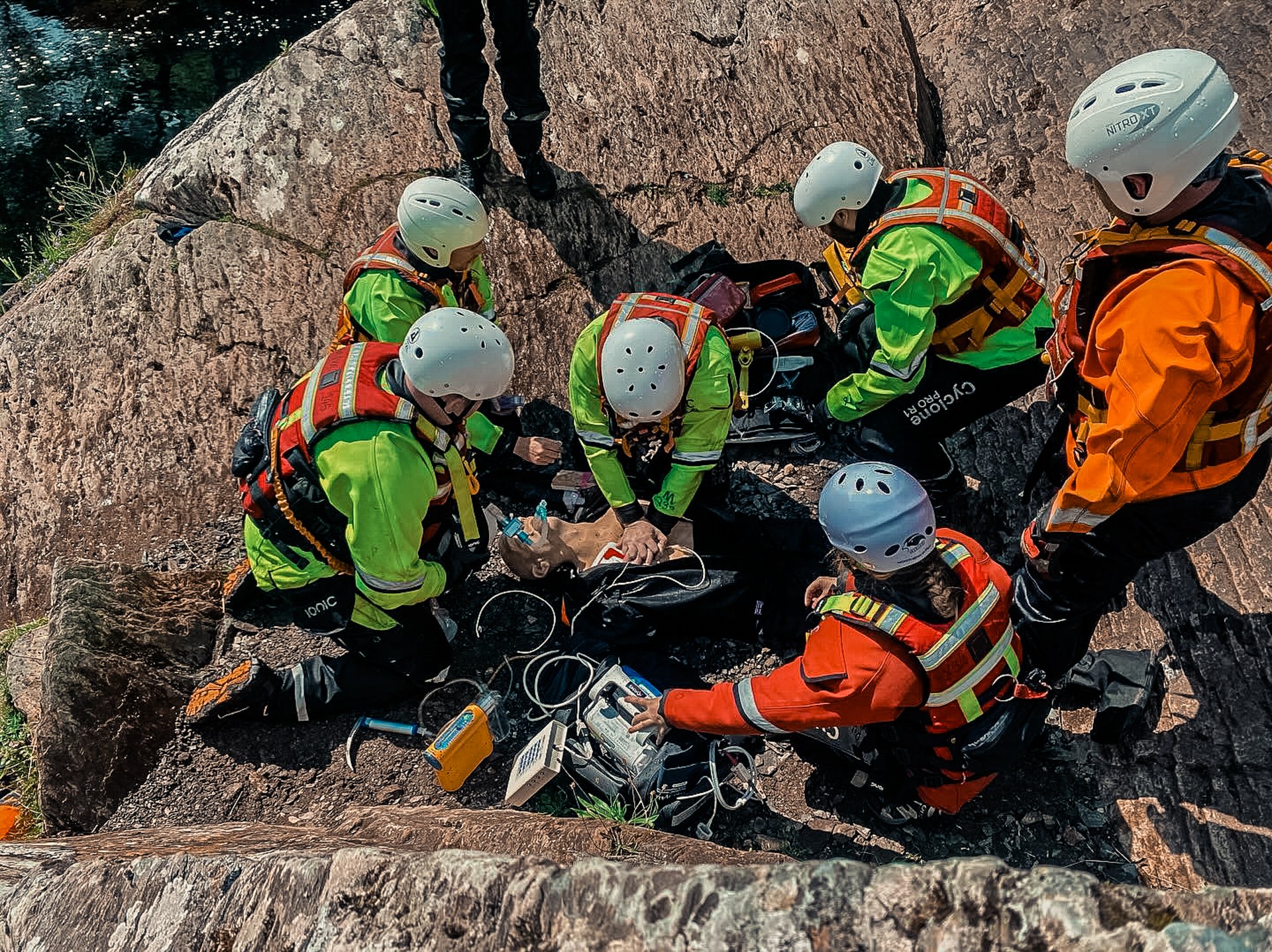When lives are on the line, there’s no room for inconsistency in prehospital emergency care. That’s why the PHEM Skills Framework, developed by the Faculty of Pre-Hospital Care of the Royal College of Surgeons of Edinburgh, exists: to set clear standards for the skills and qualifications required at every level of emergency response.
From workplace first aid to advanced pre-hospital care, this framework helps ensure that professionals in diverse organisations – from NHS trusts to voluntary aid societies and non-medical groups like the Police and Fire Service – are equipped to deliver reliable, high-quality care.
In this article, we’ll explore the key elements of the PHEM Skills Framework, how it benefits emergency service providers, and how Outreach Rescue can help you enhance your skills at every level.
What Is the PHEM Skills Framework?
The Prehospital Emergency Medicine (PHEM) Skills Framework defines and standardises the competencies needed in pre-hospital care. It categorises these skills into levels (A–H), with each level aligning with specific qualifications and care requirements in emergency scenarios.
It’s more than just a list of skills. The framework provides a benchmark for training and professional development, ensuring consistency and safety across emergency services. It’s widely used by organisations such as paramedic teams, first responders, and training institutions to align programs with recognised standards.
Why Is the PHEM Skills Framework Important?
1. Standardisation Across Services
The framework helps unify emergency care standards across diverse organisations. Whether you’re a volunteer responder, part of the Fire Service, or a military medic, the PHEM Skills Framework ensures that everyone meets the same high standards.
2. Improved Patient Outcomes
By aligning professionals to the right level of competency, the framework ensures that patients receive appropriate care in the most critical moments.
3. Professional Development
For emergency service providers, the framework is a roadmap for training and career progression. It also supports registration through the Health Practice Associates Council (HPAC), which regulates non-registered healthcare professionals.
PHEM Levels Explained
The PHEM Skills Framework breaks skills down into levels (A–H), each tied to specific qualifications and responsibilities in emergency care:
- Level A: Basic Life Support (BLS) and AED for managing unconscious, bleeding, or arrested patients.
- Level B: Workplace-level responders trained in Emergency First Aid at Work and basic airway management.
- Level C: Pre-hospital responders who are certified to use airway adjuncts and oxygen.
- Level D: Advanced skills for non-healthcare professionals (e.g., Police or Fire Service) who provide patient care as a secondary role.
- Level E: Specialist skills for primary role providers (e.g., UK Search and Rescue) with focused emergency training.
- Level F: Non-registered healthcare professionals (e.g., ambulance technicians) trained in advanced emergency care.
- Level G: Registered pre-hospital care practitioners operating under clinical governance and CPD requirements.
- Level H: The most advanced practitioners, with critical care and advanced airway management capabilities.
Upgrade Your PHEM Skills with Outreach Rescue
At Outreach Rescue, we offer a wide range of courses designed to help you achieve the competencies outlined in the PHEM Skills Framework. Here’s how our clinical education programs align with PHEM levels:
| Outreach Rescue Clinical Qualification | PHEM Level |
|---|---|
| Emergency First Aid at Work | B |
| First Response Emergency Care (FREC 3) | D |
| First Response Emergency Care (FREC 4) | E |
| The Difficult Airway Course (DAC) | F |
| First Response Emergency and Urgent Care (FREUC 5) | F |
| Advanced Cardiac Life Support (ACLS) | G |
Each course is delivered by expert trainers who combine real-world experience with exceptional teaching standards. Whether you’re starting out or advancing to more complex emergency roles, our courses provide the knowledge, skills, and confidence you need to succeed.
Why Choose Outreach Rescue?
- Recognised Standards: All our courses align with the PHEM Skills Framework, ensuring you meet nationally recognised standards.
- Expert Instruction: Our trainers bring extensive field experience, giving you insights into real-world emergency scenarios.
- Flexible Progression: From basic first aid to advanced pre-hospital care, our courses provide a clear path for professional development.
Take the Next Step in Your Emergency Care Journey
The PHEM Skills Framework has revolutionised how emergency services approach training and development, ensuring consistent care and better patient outcomes. At Outreach Rescue, we’re proud to play a role in supporting professionals to achieve their PHEM goals.
Ready to advance your skills? Explore our full range of clinical education courses today.



